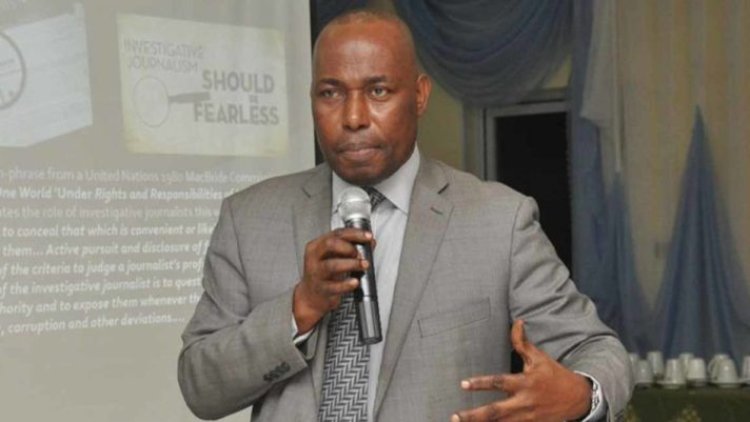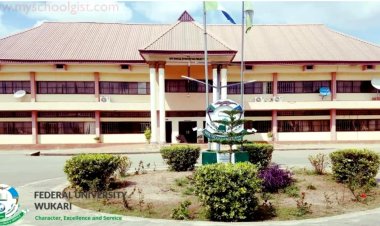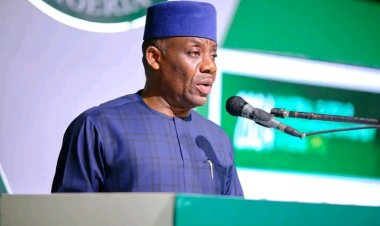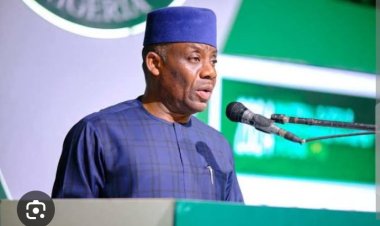Nurturing Nigerian Varsities For Global Recognition
To make the country’s education system globally competitive and attractive to international students, there is an urgent need for the government to adopt policies that would encourage ‘home-based’ scholars and draw foreign learners and researchers.

Apart from giving priority attention to teacher training and conducive learning environment, the government must revive the culture of scholarship in the nation’s education system.
These were part of the submissions made by The Guardian’s Managing Director and Editor in Chief, Martins Oloja, in his lecture at the Adekunle Ajasin University, Akungba Akoko (AAUA), titled: ‘Internationalisation of university education for global relevance: Experiences, barriers and prospects.’
Oloja noted that in today’s globalised world, countries must adopt their own national strategies and policies to attract the best international students and researchers.
Recommended For You:KWASU Student Convert Pertrol Engine Bus to One Powered...
In doing this, he said the government must reverse the present situation by sufficiently funding the sector, motivate teachers and students through an enabling teaching and learning environment.
He wondered how Nigerian students and their teachers would grow, develop, compete and effectively function in the rapidly changing global economy without the necessary tools.
According to him, Nigeria cannot benefit from the emerging global economy with the poor state of its educational system.
He noted that schools should be equipped with functional libraries and laboratories; while classrooms should have modern instructional technologies-computers connected to the Internet, projectors, audio-visual and video conferencing equipment, to make learning worthwhile.
“Teachers should not be expected to perform miracles without the necessary teaching tools. Primary and secondary schools, which are the foundations of higher education, should be adequately funded and properly staffed.”
Read Also:ASUP demands increase of education provision from 7.9%
The media chief added that admissions into the nation’s universities should be strictly on merit, while schools should offer relevant courses that prepare students for the challenges of the 21st century economy.
While advocating payment of tuition in tertiary institutions, Oloja maintained that higher education should not be free.
He argued that one could only complain about the quality of education, or any other service, when one pays for the service.
“How could one complain about the quality of something that one gets freely? Academic competition would enable the institutions to attract better quality teachers and to “rebuild a culture of scholarship” that has been neglected in the society.”
Did You Miss:AFIT notice to all prospective Direct Entry candidates...
He said the government must treat the crisis in the sector as a public health issue, failure of which the youths would continue to receive inferior education.
“And they will continue to suffer mass unemployment and social vices, such as armed robbery, prostitution, peddling and consumption of illegal drugs could worsen.”
He said the time has come for the government to declare a ‘genuine’ emergency on education, with a view to investing in the sector consciously and sincerely, to attract foreign students and scholars.
“There had been a time when even some Americans were applying to read English at the University of Ibadan. That was internationalisation when an American could hear about a great university without the Internet. There were stories of foreign students in the universities of the first generation when there was indeed a universe in the universities then,” he noted.
To return the country to this path, Oloja canvassed the use of ‘Professors of Practice,’ where an experienced and successful non-academic professional is appointed in an academic role.
Already, he said institutions like Afe Babalola University (ABUAD) and Federal University, Oye Ekiti (FUOYE), are beginning to key into this, though without proper structure, as appropriate authorities, including the National Universities Commission, (NUC) are yet to stamp it.
He also questioned what has happened to the NUC’s Linkages with Experts and Academics in the Diaspora Scheme (LEADS), established by the commission in 2007 to support the Federal Government’s efforts at transforming the education sector.
“The LEADS initiative was meant to attract experts and academics of Nigerian extraction in the diaspora on a short term basis, to contribute to the enhancement of education in the Nigerian university system.
Besides, it was meant to create appropriate engagement positions and job satisfaction for Nigerian academics and experts, so that they are not attracted away or wasted internally.
According to the NUC, LEADS was also to encourage healthy staff movements, interaction and collaboration across and between Nigerian universities and other sectors of education and national development.
Read Also:Nasarawa Governor Advocates Public-Private Collaboration...
In addition, it was meant to encourage experts in the industry to participate in teaching and research in Nigerian universities.
While calling for the revival of the LEADS project, Oloja said the diaspora commission should be involved to get a proper register of the country’s professors abroad.
“We can begin internationalisation by putting structures and infrastructure here, and then invite our people who teach abroad at the moment. Then, our people can also exploit that to go abroad on some exchange programmes and return. China and other Asian countries exploit this strategy a great deal.
Read Also:KDU-I Lays Foundation for Senate Building, Founder Aims...
“The commission should look into this global practice to strengthen our manpower challenge. When you can attract some experienced professionals and technocrats from Nigeria, and some lecturers from abroad, that can be a turning point on our way to internationalisation. We can begin from the homestead,” Oloja stated.

 Akeelah
Akeelah 


